Idea by
Michael Hieslmair & Michael Zinganel
Tracing Spaces
Call for ideas 2021
Living Infrastructure (Working Title)
Living Infrastructure (Working Title)
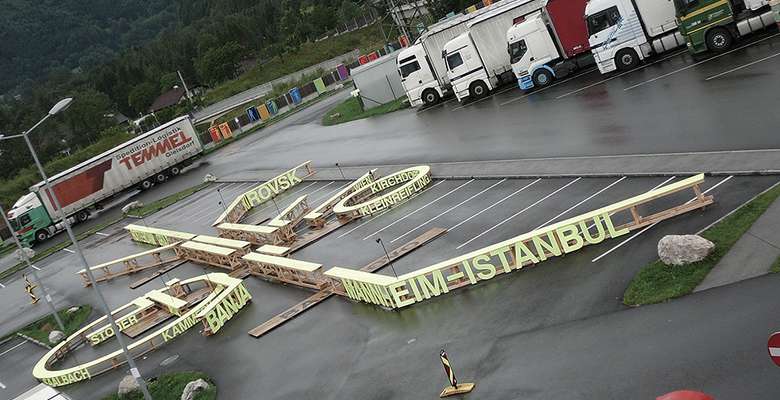
- Site-specific cases
Like any distribution centre cannot be perceived as a singular place or building, cities today are part of a wide-ranging network of interrelated transport routes and nodes. Despite logistics 4.0, it’s people from the most diverse social milieus who organise this exchange of goods, optimise warehousing, regulate traffic, control vehicles and unload and load goods. Corona-related lock-downs and border closures, made the importance of these people apparent for a short time: badly paid harvest and care workers, employees in food retail and distribution centres, truck drivers and delivery services are caring for our welfare and living standard while we do not care much about them. Therefore we find it important to shed light on these transport corridors and nodes as lived spaces and translate the knowledge and histories gained by interviews, mapping exercises, workshops, and artistic interventions at such sites, into 3 dimensional cartographies, that make both objects and subjects ‚speak’.
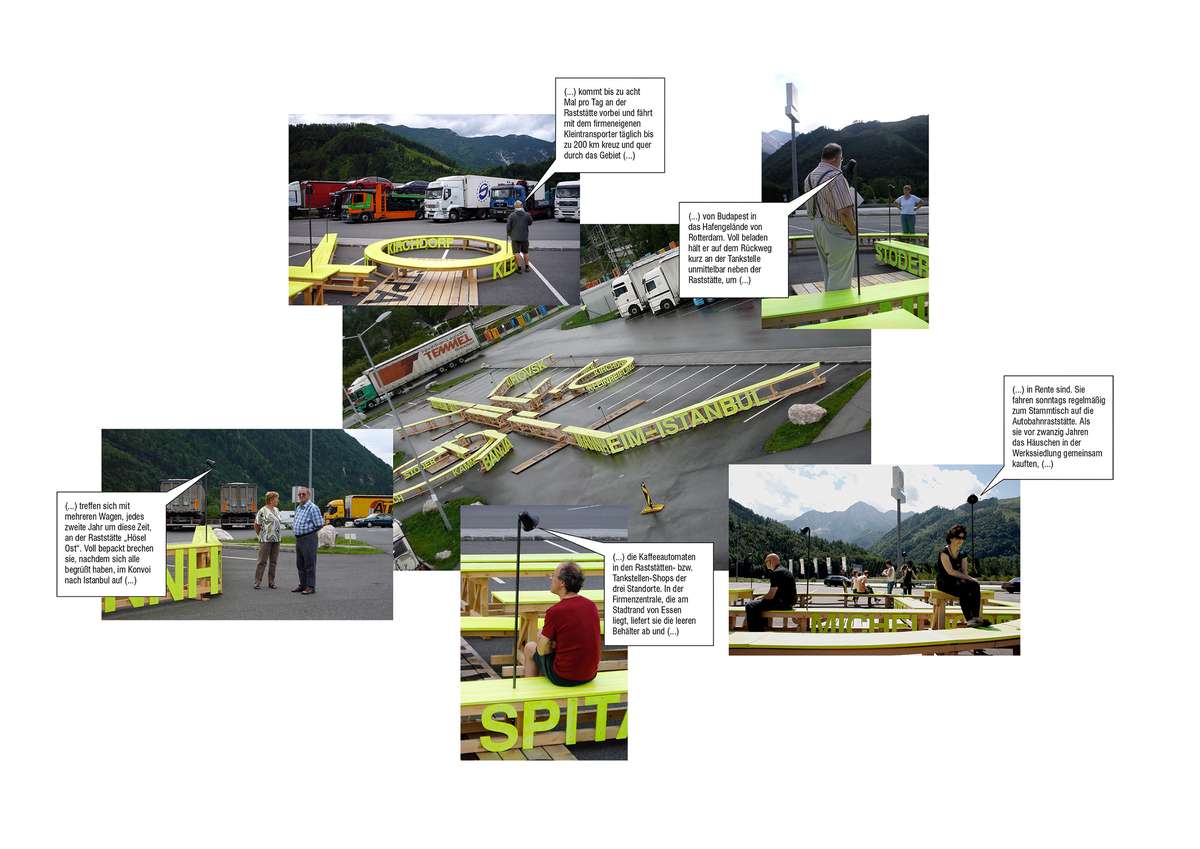
As part of the project, we are developing a path network and audio installation that will either be installed directly at logistics hubs (outdoor) or shown in exhibition spaces (indoor). Micro-narratives relate both to the individuals’ biographies and to more general historical, political, and economic transformations, thereby interrelating transnational mobility flows and place-making in very specific sites.
(Example photo of reference project EXIT St. Pankraz, Festival of Regions 2007)
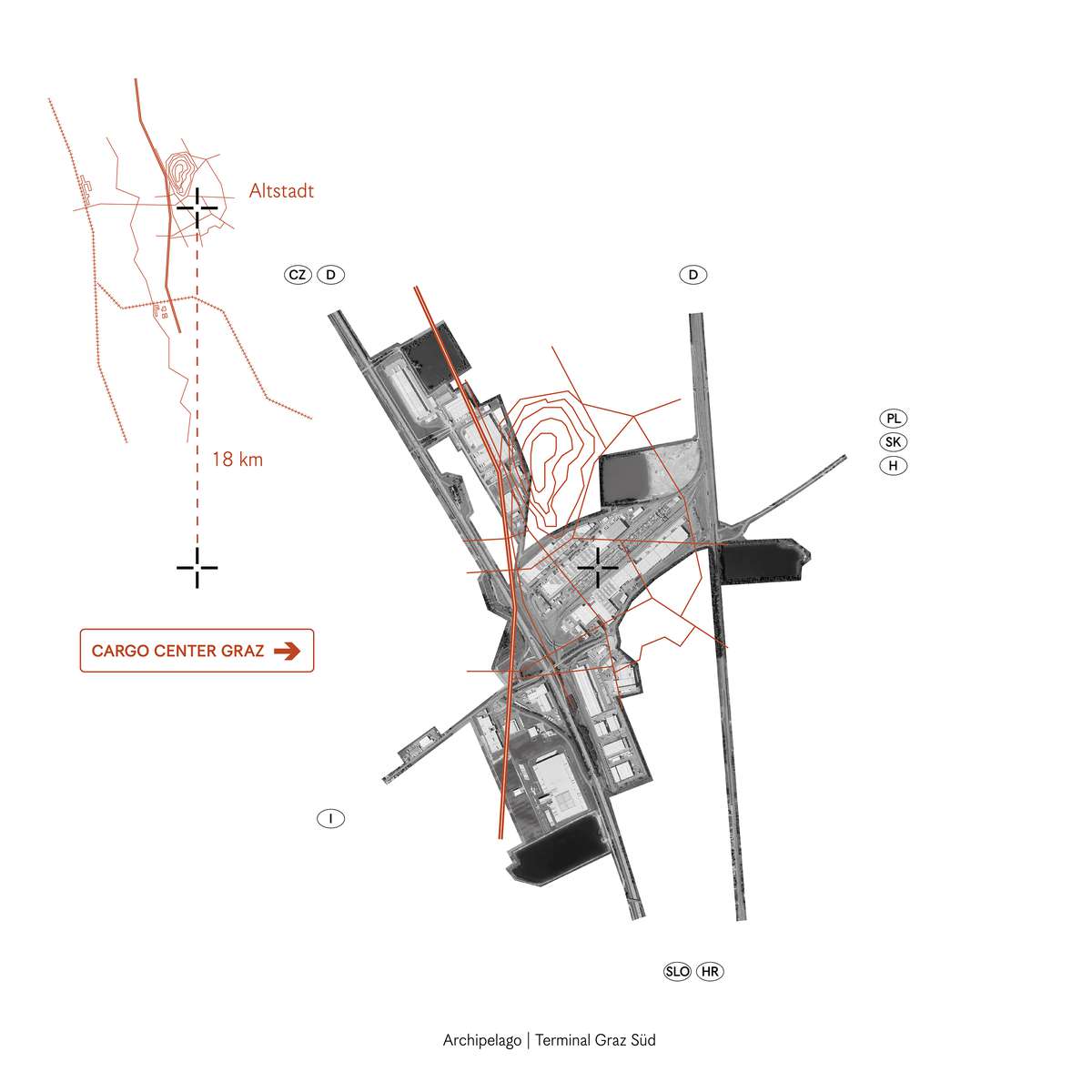
Transport and waste disposal require technical and social infrastructures such as regional and transnational road transport corridors, rail networks, air connections, transport vehicles of all kinds, freight transhipment points, but also international regulations that govern the transnational exchange of goods. And let's not forget: Despite Logistics 4.0, they also need people who organise this exchange of goods, regulate the traffic, control the vehicles and unload and load the goods.
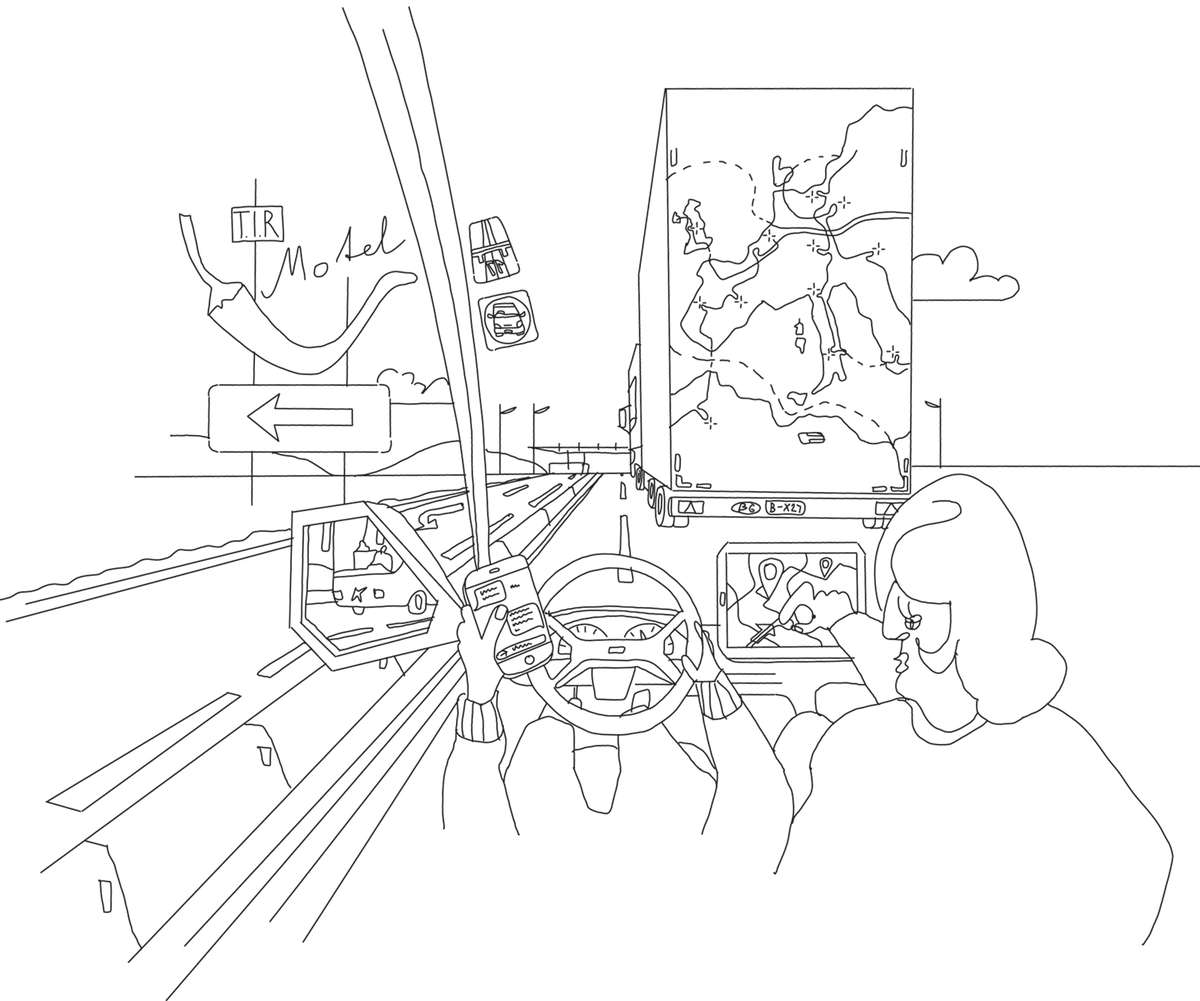
Networks and vehicles and the supposedly non-places on the peripheries represent meaningful living worlds for many social actors that encompass different social milieus, from "highly skilled expats" to "low-skilled migrants". Real developments that are linked to individual fates and company histories are researched using participatory methods, projected into the future and played back in integrative artistic formats at social nodes in the field of investigation.
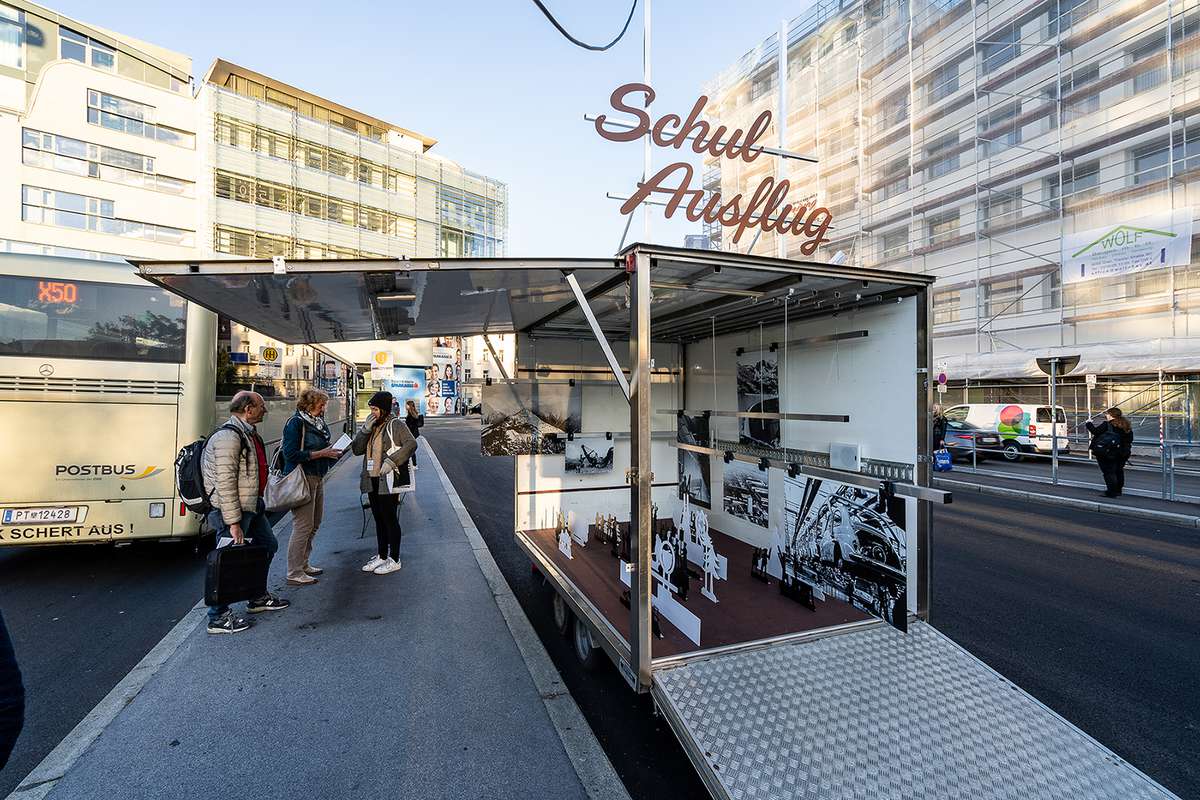
An adapted trailer will serve as a collection vessel and will be designed according to the theme and equipped with cartographies, sculptural elements, video clips and a radio play. During the public project presentations, it will be parked in front of the respective venues and, on the occasion of the research trips to the logistics landscape, it will be carried along and used as a trigger for discussions with the actors of everyday life.
(Reference project Schulausflug, steirischer herbst 2018)
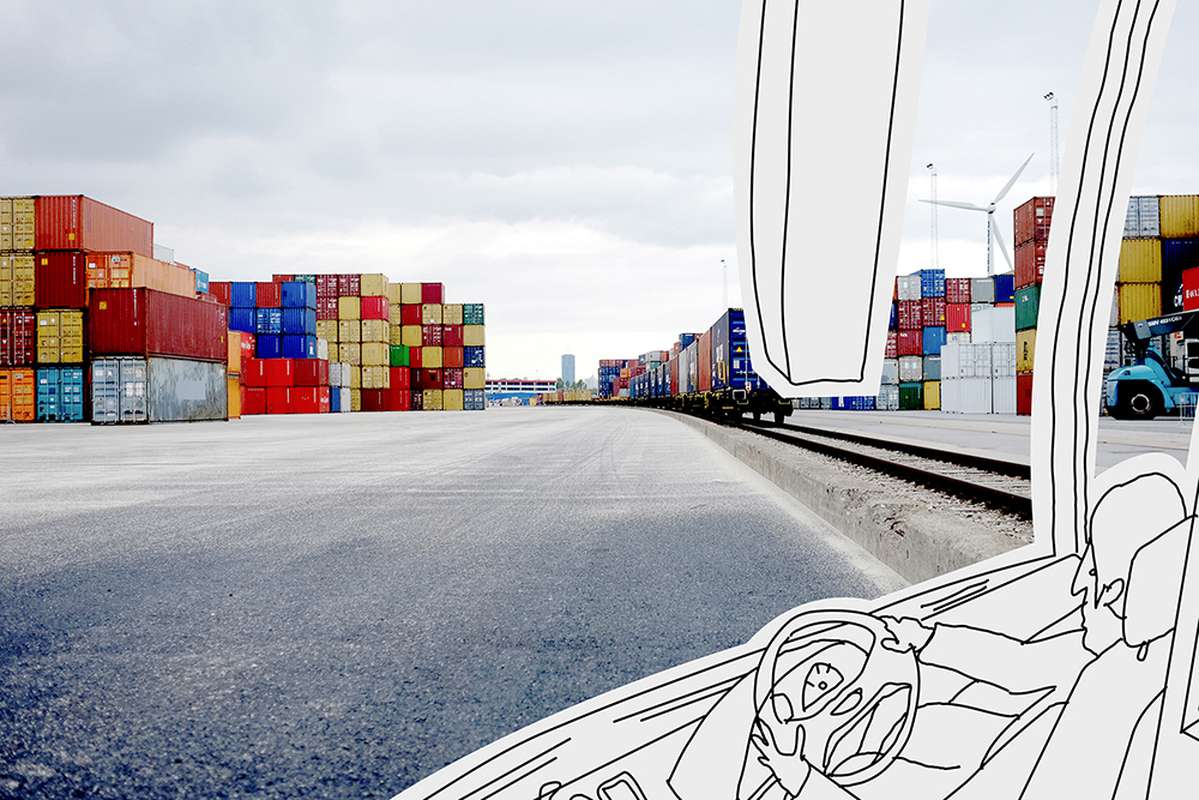
In transient communities of public bus excursions with experts as guests lead to logistics companies in and around Graz as well as to the formal and informal social nodes of the actors working in this sector.
The tours serve both as triggers for the collection and dissemination of expert knowledge. Artistic pop-up installations will also be presented at the intermediate stops.
Living Infrastructure (Working Title)
Living Infrastructure (Working Title)

- Site-specific cases
Like any distribution centre cannot be perceived as a singular place or building, cities today are part of a wide-ranging network of interrelated transport routes and nodes. Despite logistics 4.0, it’s people from the most diverse social milieus who organise this exchange of goods, optimise warehousing, regulate traffic, control vehicles and unload and load goods. Corona-related lock-downs and border closures, made the importance of these people apparent for a short time: badly paid harvest and care workers, employees in food retail and distribution centres, truck drivers and delivery services are caring for our welfare and living standard while we do not care much about them. Therefore we find it important to shed light on these transport corridors and nodes as lived spaces and translate the knowledge and histories gained by interviews, mapping exercises, workshops, and artistic interventions at such sites, into 3 dimensional cartographies, that make both objects and subjects ‚speak’.
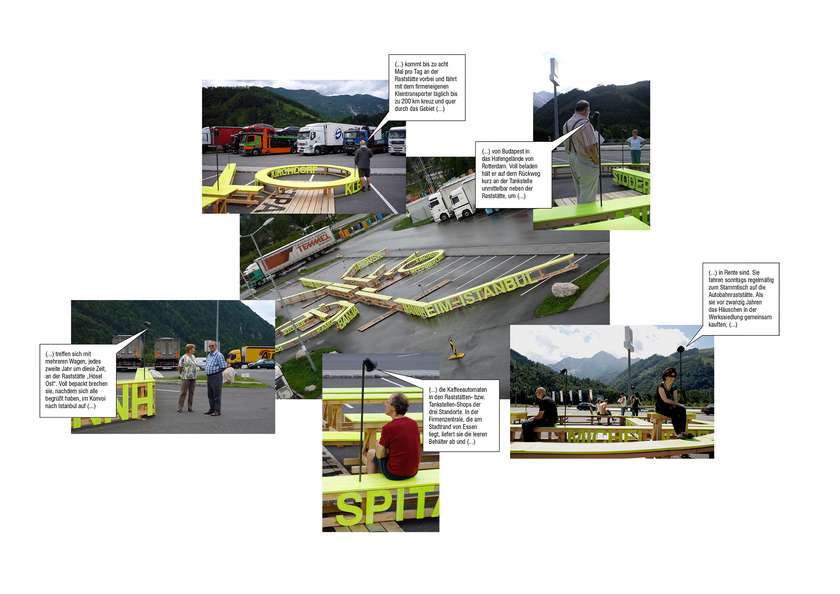
As part of the project, we are developing a path network and audio installation that will either be installed directly at logistics hubs (outdoor) or shown in exhibition spaces (indoor). Micro-narratives relate both to the individuals’ biographies and to more general historical, political, and economic transformations, thereby interrelating transnational mobility flows and place-making in very specific sites.
(Example photo of reference project EXIT St. Pankraz, Festival of Regions 2007)
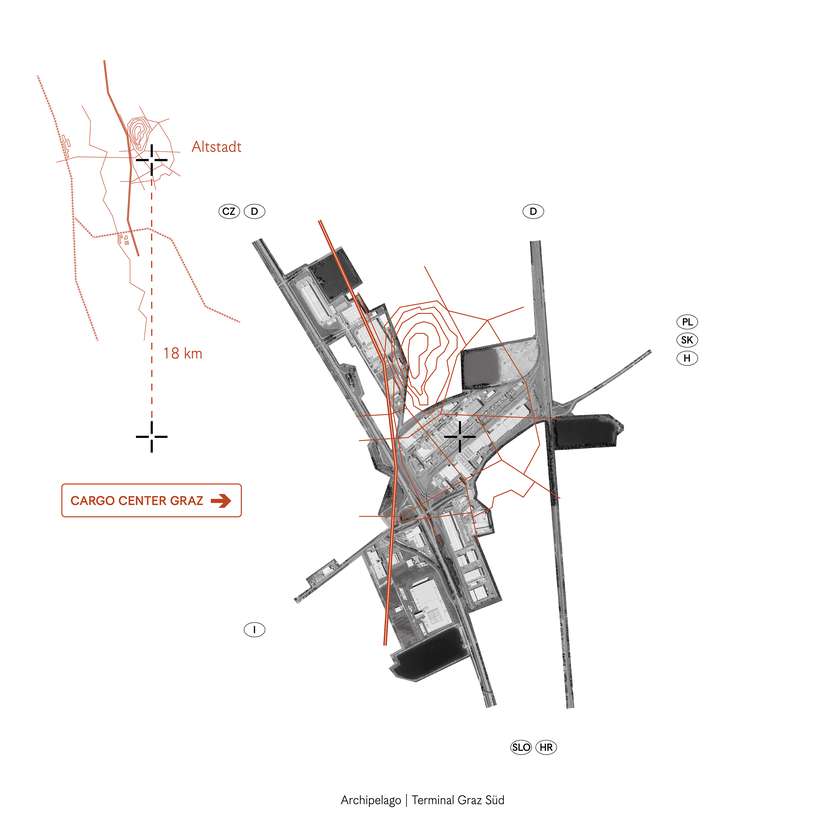
Transport and waste disposal require technical and social infrastructures such as regional and transnational road transport corridors, rail networks, air connections, transport vehicles of all kinds, freight transhipment points, but also international regulations that govern the transnational exchange of goods. And let's not forget: Despite Logistics 4.0, they also need people who organise this exchange of goods, regulate the traffic, control the vehicles and unload and load the goods.
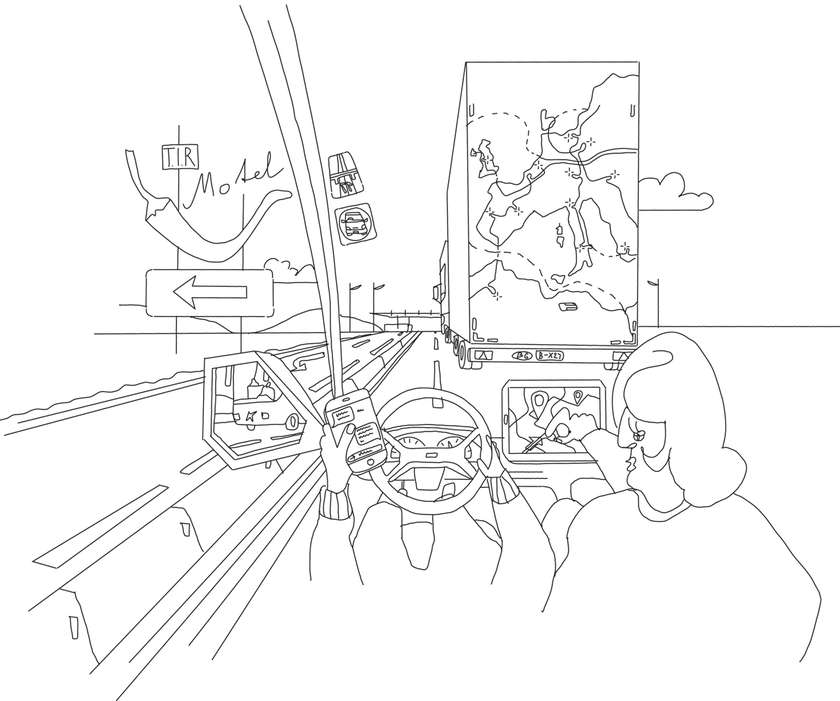
Networks and vehicles and the supposedly non-places on the peripheries represent meaningful living worlds for many social actors that encompass different social milieus, from "highly skilled expats" to "low-skilled migrants". Real developments that are linked to individual fates and company histories are researched using participatory methods, projected into the future and played back in integrative artistic formats at social nodes in the field of investigation.
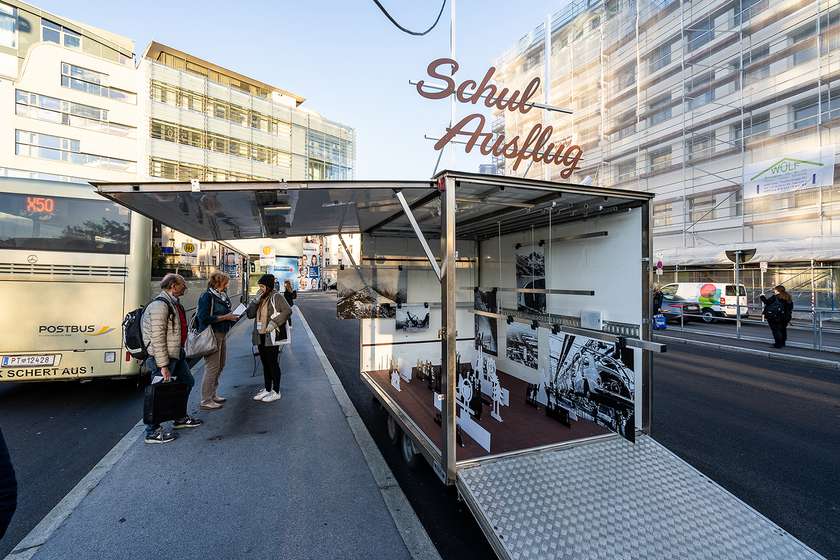
An adapted trailer will serve as a collection vessel and will be designed according to the theme and equipped with cartographies, sculptural elements, video clips and a radio play. During the public project presentations, it will be parked in front of the respective venues and, on the occasion of the research trips to the logistics landscape, it will be carried along and used as a trigger for discussions with the actors of everyday life.
(Reference project Schulausflug, steirischer herbst 2018)
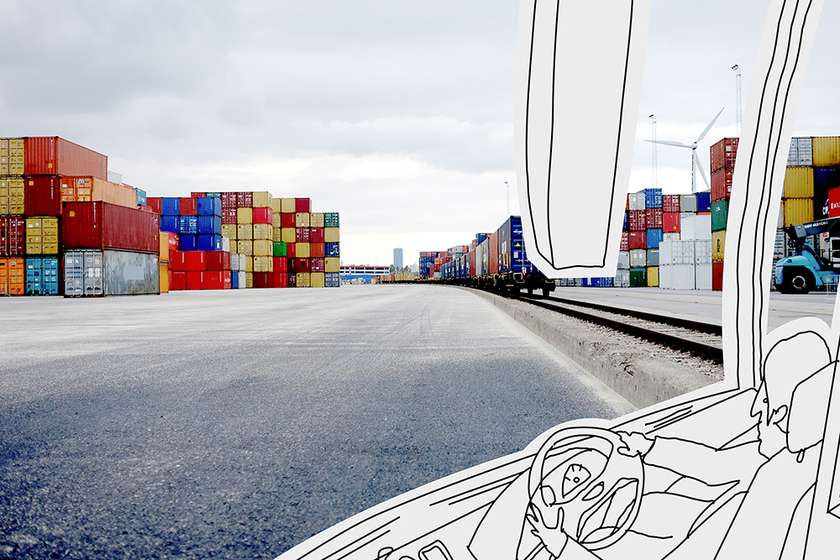
In transient communities of public bus excursions with experts as guests lead to logistics companies in and around Graz as well as to the formal and informal social nodes of the actors working in this sector.
The tours serve both as triggers for the collection and dissemination of expert knowledge. Artistic pop-up installations will also be presented at the intermediate stops.